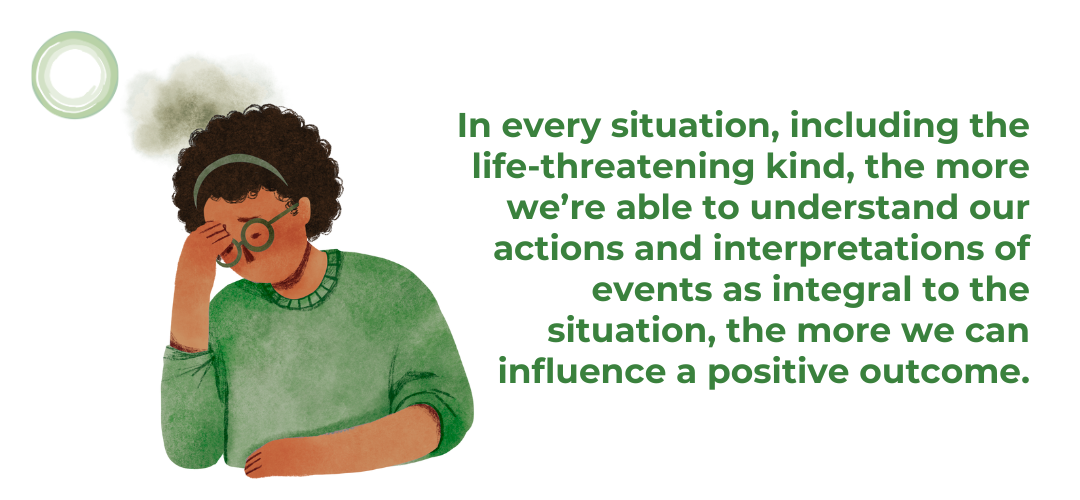When Complaints Mask a Deeper Pattern
Troy was busy outlining the problems he faced in his new role as Head of Commercial Operations: “My best performers are jumping ship. The weaker ones are constantly off sick. And the CEO shows zero understanding of the issues plaguing the business. All he can talk about is how my team needs to spend more time landing new accounts. Can’t he see we’re firefighting the ones we have?”
The company he’d joined had turned out to be, in his words, “a complete fiasco.” That morning their single largest account cancelled their contract after a string of recent disasters, all of which traced back to Troy’s team.
Once a high performer, Troy was on his third different job in the industry in less than two years. The reason? In his mind, many. In my mind, one: somewhere along the way, he’d gotten stuck in victim-mindset mode. If this sounds familiar, you may also recognize how this mindset affects team dynamics — here’s how to get honest feedback from your team when the story isn’t clear.
In his previous company he lasted less than six months. Hired to oversee a crucial post-merger integration, he joined the senior team in August and resigned from it by Christmas. His colleagues couldn’t handle the changes required, he’d told me. “They’re just not at my level. They don’t have the skills.” And in the company before that: it was a personality clash with a new CEO.
What was it going to take for Troy to see his own contribution to the messes he found himself in?
The Power of Perspective: Amanda’s Story
Recently I’d had the privilege to hear Canadian journalist Amanda Lindhout talk about the heart breaking fifteen months she’d spent held hostage in Somalia.
Her captors had shackled and tortured and sexually abused her. She’d lain in pitch blackness on a cold concrete floor for nine months, her body battered and torn, her mind battling near-constant terror and despair. During her darkest moments Amanda discovered that “disabling thoughts” seem to push her body closer to death.
She needed to hunt for the thoughts that might keep her sane and alive.
Training her mind towards life, she mentally guided herself through every part of her body, finding a way to separate herself from the severity of her physical pain. A soothing inner voice whispered to her: “Amanda, it’s only your body that’s suffering, and you are not your body. The rest of you is fine.”
Amanda also searched for the positive outside of herself; she could see how the boys who abused her had been shaped by their own horrors. How war and poverty had dragged them to a place where they’d become capable – as we all are – of inflicting immense suffering onto others.
In the years after her imprisonment, Amanda went on to set up the Global Enrichment Foundation, an educational charity for young people in conflict-ridden countries. She explained: “I had something very, very large and very painful to forgive. I needed to put that pain toward a vision of creating a greater good.”
Her story had stayed with me for weeks after hearing it. Especially when she shared that what saved her was choosing not to see herself as a victim. This kind of self-awareness is core to emotional intelligence in leadership — especially when facing high-stress environments.
Contrasting mindsets: Control vs. Powerlessness
If Troy’s problems seem incomparable with Amanda’s harrowing ordeal, both stories reveal the power of the victim mindset. Amanda sought out and clung to what she could control – her own thoughts. Troy allows his circumstances to control him.
Now, I’m not talking about being the victim of a crime. Certainly, there is plenty of that going on right now in the world and hopefully we see the appropriate level of justice to deal with it. What I’m talking about is adopting a victim mindset at work that keeps you from making real leadership growth.
In listing the so-called facts of his situation, Troy distracts himself from the deeper truth. While it’s not inconceivable that Troy’s industry is littered with difficult bosses, incompetent colleagues and broken business processes, this is not – despite his insistence – the central problem.
His perception that he’s powerless is.
He looks exasperated as he tells me, “absolutely no one will hire me if I leave a third company …. I can’t just quit. I have a mortgage to pay. There’s nothing I can do.”
It’s true Troy has no options. Because he’s too deeply attached to identifying himself as the victim. He keeps looking for and finding other people to blame.
Building the confidence to lead from clarity, not blame comes from working on develop executive presence under pressure. Our Leadership EDGE course helps leaders shift from stuck patterns to confident, empowered decision-making.
Three Hidden Payoffs of the Victim Mindset
In insisting “it’s beyond my control,” Troy gets to enjoy the situational, physical and emotional benefits of being in a victim mindset:
- Situational: He’s able to excuse poor results and avoid blame (at least in his own mind) for just about anything that goes wrong.
- Physical: If the situation is helpless, then he doesn’t need to do something about the challenges the organization faces. He doesn’t need to be brave or resourceful.
- Emotional: Instead, he can turn to loved ones for sympathy and attention or he can indulge in self-pity.
The Real Cost of Choosing Powerlessness
Who doesn’t sometimes blame the outside world? And it’s important, especially if you’re one of those people who takes too much “responsibility,” to not blame or judge yourself as part of taking a responsible mindset, especially when you’re facing difficult circumstances. However, when we deny our own role in creating the situation we’re in, and when we do that most of the time, then we hand our lives over to others.
And when that happens, possibilities and solutions shut down. In every situation, including the life-threatening kind, the more we’re able to understand our actions and interpretations of events as integral to the situation, the more we can influence a positive outcome.
From a victim mindset, we have no control over what happens next. From a responsible mindset, we do.

I’ve recently had to deal with personal circumstances regarding the break-up of a relationship that had me, too, swirling in the victim mindset. I’m not immune to the payoffs or the cost.
Next month, I’ll share more about this as we examine the four steps to coach yourself and others away from the victim mindset toward beliefs that set us free.
Until then, the first step out of the victim trap is to ask ourselves: In what situation do I act powerless?
Struggling with a team or leader stuck in a blame cycle? Learn how our custom coaching and team programs create breakthrough performance.


